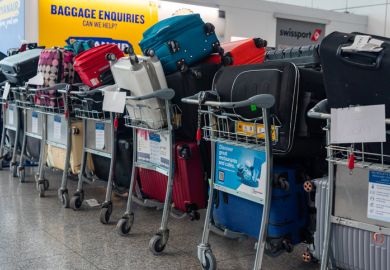The implementation of restrictions barring citizens of seven predominantly Muslim countries from entering the US is only the latest mini-tsunami in what will be a sea change in patterns of higher education internationalisation.
Not every Western country is turning against internationalisation. Canada, for instance, is keeping its doors open and expanding programmes for international mobility, preserving a path to citizenship for graduates from other countries. But Donald Trump’s actions, Brexit, inward-looking nationalist governments in Poland and Hungary and the rise of the populist Right in Europe are all roiling the currents of student flows that have prevailed for the past half-century.
Changes in policies and in opinions about the role of student and academic mobility can also be expected in some European countries. The budget, and perhaps even the existence, of the European Union’s flagship Erasmus mobility scheme could be threatened. Research cooperation and higher education capacity-building programmes could also fall foul of growing anti-EU feeling. And in the US, the Fulbright scholarships will face severe budget cuts, which will restrict the mobility of students and faculty. Internationalisation, already perceived to be elitist, will likely be continued only by wealthy, prestigious universities.
In the West, the trend towards “border closing”, or at least tighter restrictions, may well grow. It is unclear whether countries whose citizens are affected by discriminatory policies will retaliate, creating a kind of “trade war” in higher education internationalisation.
Moreover, even if the restrictions imposed by the US and the UK end up being quite limited, it seems certain that their market shares, already in decline, will be hit. Global perceptions of the US and the UK – and of other European countries that follow their lead towards intolerance and xenophobia – will suffer, weakening their dominance of global higher education.
In the US, continuing financial constraints combined with fewer fee-paying international students could threaten with closure some smaller public universities and colleges already facing demographic challenges.
The fallout from the erection of barriers to immigration and trade could also jeopardise the future of more than 200 international branch campuses, mainly sponsored by European and US universities and often located in Muslim-majority countries. Certainly, their expansion will stall as their hosts become less eager to support them, and universities from other regions, including India and China, may well fill their places.
Internationalisation has been perceived as a Western concept. But with the West largely shutting itself off, the next wave of higher education internationalisation might well take place among developing and emerging economies. China and India might strengthen their policies aimed at attracting international students and staff. And the trend towards increasing mobility within and between the Asian, Latin American and African regions will speed up.
We are not arguing that mobility will end or that the academic community itself is abandoning internationalisation as a goal. The operational side of internationalisation has in recent years become big business – and not for universities alone. This has somewhat modified the more idealistic aspects of internationalisation, but overall the academy will remain committed to global understanding, respect for diverse cultures and an open society welcoming cooperation between different political, cultural and economic partners.
Many universities and their faculty and students in the US and Europe will take initiatives to promote international solidarity, cooperation and exchange. A commitment to global citizenship – a concept denied by Trump and Theresa May – will become a key factor in universities’ fight for autonomy and academic freedom.
But occurrences of hostility and discriminatory practices, incidents of harassment at border crossings, difficulties in obtaining visas and many other problems, real or perceived, will affect how people think about mobility and internationalisation. The genie is out of the bottle, and it cannot easily be put back.
Philip G. Altbach is research professor and founding director and Hans de Wit professor and director at the Center for International Higher Education, Boston College, US.
POSTSCRIPT:
Print headline: Sunset in the West?
Register to continue
Why register?
- Registration is free and only takes a moment
- Once registered, you can read 3 articles a month
- Sign up for our newsletter
Subscribe
Or subscribe for unlimited access to:
- Unlimited access to news, views, insights & reviews
- Digital editions
- Digital access to THE’s university and college rankings analysis
Already registered or a current subscriber?








